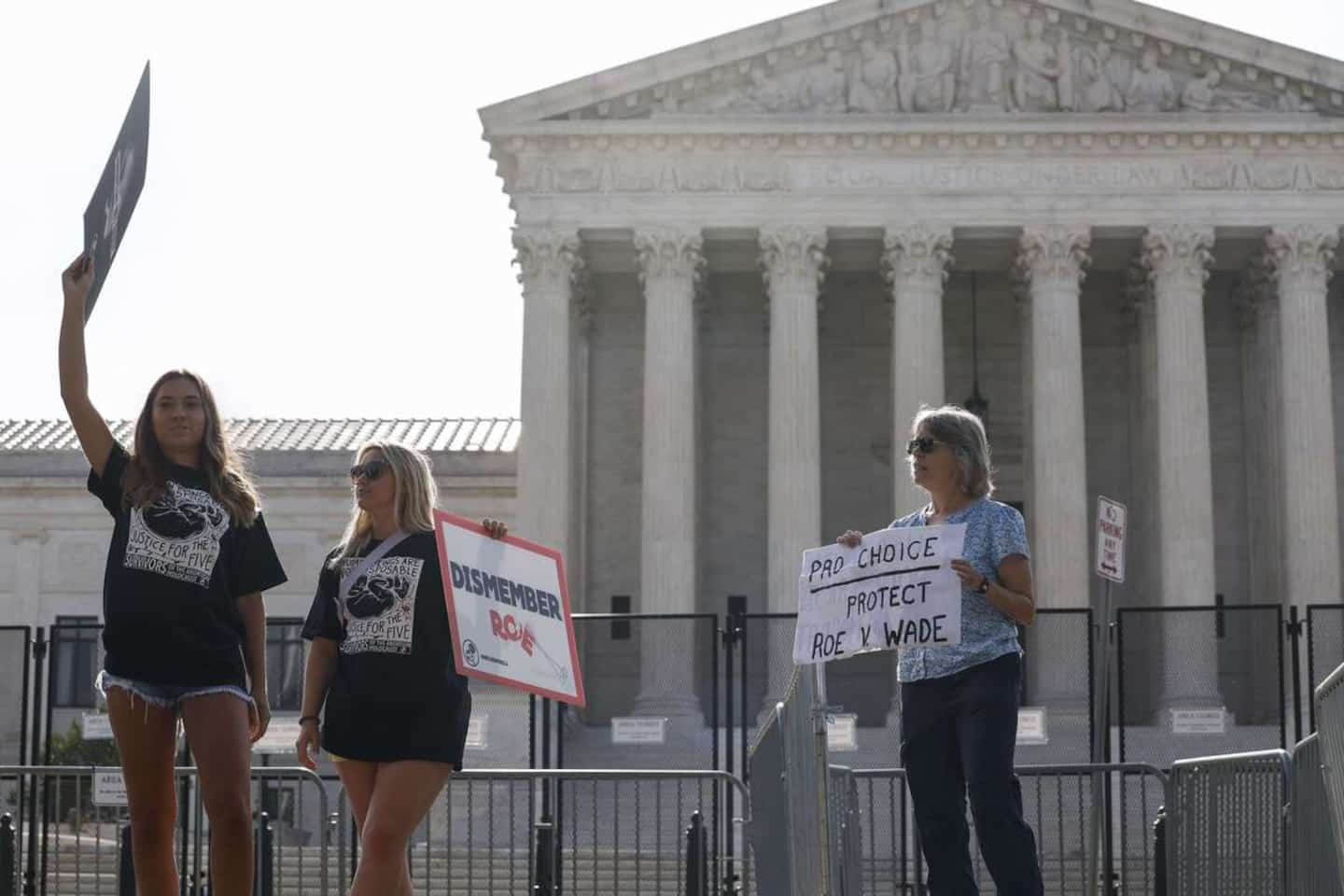In a historic about-face, the ultra-conservative U.S. Supreme Court on Friday buried a ruling that for nearly half a century had guaranteed American women's right to abortion but had never been accepted by the right. religious.
• To read also: An American fears for her life after the refusal of a medical abortion in Malta
• Read also: The right to abortion threatened in half of the United States
• Read also: What, exactly, is the Roe v. Wade case?
This decision does not make terminations of pregnancy illegal, but returns the United States to the situation in force before the emblematic judgment “Roe v. Wade” from 1973, when each state was free to authorize them or not.
Given the fractures in the country, half of the states, especially in the more conservative and religious south and center, could quickly banish them.
“The Constitution makes no reference to abortion and none of its articles implicitly protects this right,” wrote Judge Samuel Alito on behalf of the majority. Roe v. Wade "was totally unfounded from the start" and "must be canceled".
“It is time to return the issue of abortion to the elected representatives of the people” in local parliaments, he wrote again.
This formulation is close to a preliminary draft of the judgment which had been the subject of an unprecedented leak in early May, causing major demonstrations throughout the country and a wave of indignation on the left.
Since then, the climate has been extremely tense around the courtyard, where an imposing security barrier has been installed to keep protesters at a distance. A gunman was even arrested in June near the home of magistrate Brett Kavanaugh and charged with attempted murder.
On Friday, as soon as the decision was announced, protesters flocked by the hundreds to the temple of law in Washington, with tears of joy or sadness.
In the official ranks, the reactions were also poles apart. The main family planning organization has promised to continue to "fight" to guarantee access to abortion, former Democratic President Barack Obama denounced an "attack on the fundamental freedoms of millions of American women".
But former Republican Vice President Mike Pence, a devout Christian, hailed a ruling that "corrects a historic mistake", while the pro-abortion opponent group Pro-Life Campaign called "a momentous day for human rights". humans”.
President Joe Biden, a devout Catholic who has promised to act by executive order to protect access to voluntary termination of pregnancy, is due to speak at 4:30 p.m. GMT.
On Trump's record
The judgment published Friday "is one of the most important in the history of the Supreme Court since its creation in 1790", notes health law professor Lawrence Gostin. "It has already happened that it changes its case law, but to establish or restore a right, never to remove it," he told AFP.
The decision goes against the international trend to liberalize abortions, with advances in countries where the influence of the Catholic Church remains strong, such as Ireland, Argentina, Mexico and Colombia.
It crowns 50 years of a methodical struggle led by the religious right, for whom it represents a huge victory, but not the end of the battle: the movement should continue to mobilize to bring as many states as possible into its camp or to try to get a federal ban.
It is also part of the record of former Republican President Donald Trump who, during his mandate, profoundly overhauled the Supreme Court by bringing in three conservative magistrates (Neil Gorsuch, Brett Kavanaugh and Amy Coney Barrett) signatories today today of this judgment.
Concretely, this relates to a Mississippi law which was content to reduce the legal time limit for an abortion. From the hearing in December, several judges had hinted that they intended to take the opportunity to review the Court's case law more fundamentally.
The three progressive magistrates dissented from the majority, which they said "endangers other privacy rights, such as contraception and same-sex marriages" and "undermines the legitimacy of the Court". The majority "has emancipated itself from its obligation to apply the law honestly and impartially", they denounce in a text with a sharp tone.
The head of the court, the moderate conservative John Roberts, took in a separate argument a "more measured position": in the name of "judicial deference", he wanted to agree with Mississippi and review the deadlines for abortions without bringing down Roe. vWade.
"Zombie" Laws
According to the Guttmacher Institute, a research center that campaigns for access to contraception and abortion around the world, 13 states have so-called "zombie" or "trigger" laws: prohibiting abortion, they have been drafted to come into force almost automatically in the event of a reversal at the Supreme Court.
"In the coming days, weeks and months, we should see clinics close" in these sometimes very populated states (Texas, Louisiana ...), anticipates Lawrence Gostin.
A dozen other states are expected to follow with full or partial bans.
In one part of the country, women wishing to have an abortion will therefore be forced to continue their pregnancy, to manage clandestinely, in particular by obtaining abortion pills on the internet, or to travel to other States, where abortions will remain legal.
Anticipating an influx, these mostly Democratic states took steps to make abortion easier to access on their soil, and clinics began to shift their staffing and equipment resources.
But traveling is expensive and the Supreme Court ruling will further penalize poor or single-parent women, who are over-represented in black and Hispanic minorities, abortion rights advocates say.













